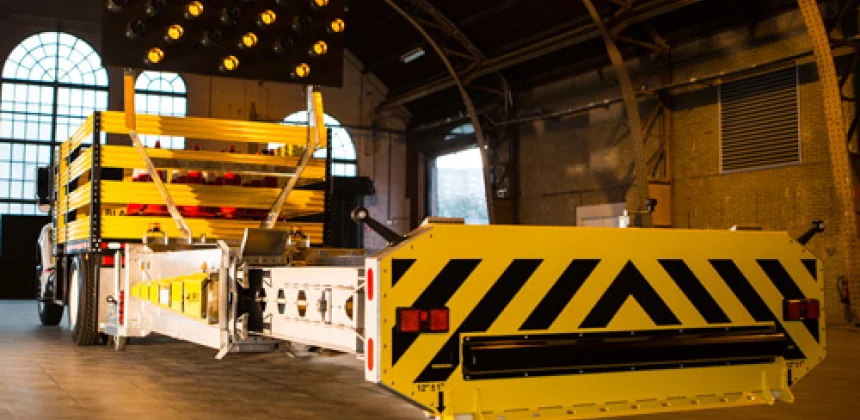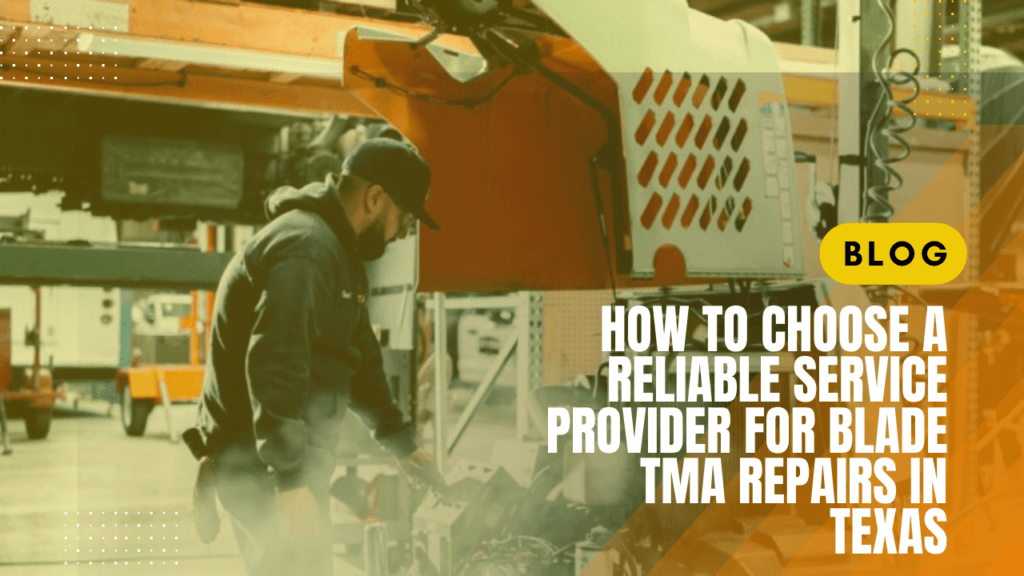Especially the Blade TMA, truck-mounted attenuators (TMAs) are particularly crucial for shielding roadwork personnel and drivers. These devices absorb the impact of collisions, preventing significant injury or death. TMAs are so vital that they must be kept in flawless working order. In Texas, where the vast road network and significant traffic load put extra pressure on road safety equipment, finding a reliable service provider for TMA repairs is essential.

But for handling your Blade TMA repairs, which vendor would be best? This guide will help you make a sensible choice to ensure the efficient operation of your TMAs.
What Should One Look for When Selecting a Blade TMA Repair Texas Facility?
1. TMAs and Road Safety Equipment Knowledge
Look for companies with specific expertise in TMAs, not just general heavy equipment maintenance. TMAs have specialized components and mechanisms, so the repair provider must have a solid background in handling these devices.
Find out:
- How long have they been servicing TMAs?
- Do they work with a wide range of attenuators or specialize in Blade TMAs?
- Can they provide examples of past projects?
2. Certified and Qualified Technicians
The credentials of the technicians are just as important as the company’s experience. Technicians trained in road safety equipment maintenance should handle TMAs. Look for certifications or affiliations with reputable organizations like the American Traffic Safety Services Association or the National Highway Institute.
- What certifications do your technicians have?
- Does your team have specific expertise in TMAs or road safety equipment?
3. All-Inclusive Service Provision
A reputable repair shop should offer comprehensive services, including routine inspections, emergency repairs, and preventative maintenance. They should be able to service all TMA components, from hydraulic systems to impact cushions, and advise on repairing versus replacing faulty parts.
Ask:
- Do you offer preventative maintenance and emergency repairs?
- Can you handle complete overhauls and part replacements?
4. Knowledge of Texas-Specific Regulations
Texas has its own safety regulations for the use of TMAs in work zones. A reputable service provider should understand these state-specific rules to ensure compliance.
Ask:
- Are you familiar with TxDOT policies for TMAs?
- How do you ensure repaired TMAs meet Texas safety standards?
5. Client Feedback and Reputation
Look for client testimonials or reviews to evaluate the company’s reputation. Positive feedback from clients in the road safety or construction industries is a good indicator of reliable service.
- Can you provide references from previous clients?
- What kind of feedback do your clients usually leave?
6. Accessibility and Response Time
Considering TMAs are critical safety equipment, downtime can be costly and dangerous. Choose a Blade TMA Repair Texas service provider that responds quickly to both scheduled maintenance and emergencies.
Ask:
- How quickly can you respond to emergency repair requests?
- Do you offer 24/7 repair services?
7. Parts and Labor Warranty
A reputable service provider should offer warranties covering both parts and labor. This demonstrates their confidence in the quality of their work and ensures you’re covered if a repair fails prematurely.
- Do you offer warranties on parts and labor?
- What is the warranty period?
Checklist: Questions to Ask Before Hiring a Blade TMA Repair Texas Provider
- How many years have you been servicing Blade TMA Repair in Texas?
- What certifications and training do your technicians have?
- Do you offer full-service options, including maintenance and inspections?
- Are you familiar with Texas-specific safety regulations for TMAs?
- Can you provide client references?
- What is your response time for emergency repairs?
- Do you offer warranties on parts and labor?
By following these guidelines and asking the right questions, you can confidently select a reliable service provider to keep your Blade TMAs in top condition, ensuring safety for your crew and the traveling public on Texas highways.
For more information on scheduling repairs or maintaining your TMAs, visit Western Highways Traffic Safety, where safety is our top priority, and your road equipment is always kept in peak working order. You can also visit us at our Location HERE.




